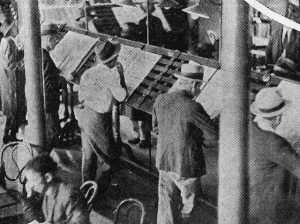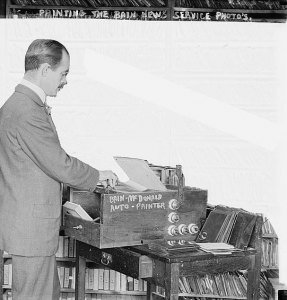The ongoing discussion over how Internet platforms should deal with Alex Jones has provided a test-case for how Internet platforms should approach the question of ‘fake news’.
Alex Jones – described alternatively as a performance artist and a conspiracy theorist, amongst other things – is known for making unsubstantiated claims.
He (or at least the persona he presents) is firmly right-leaning, in the American context. This of course makes the whole debate more complicated. In polarised times, dismissing Jones as ‘fake news’ only leads to accusations of left-wing bias from his supporters.
Jones also tests the boundaries between extreme speech and dangerous speech.
This is a critical line – extreme speech may be uncomfortable, but is also part of the deal with freedom of expression. Calls for universal suffrage or religious freedom were also considered to be extreme speech for much of history.
This has placed Internet platforms in a difficult position. They are, at their core, profit-making companies – or at least aim to be – and have come across as uncomfortable in having to take these sorts of decisions.
They were never likely to find it easy. In addition to the fundamental difficulty of moderating billions of people, they are bigger – and richer – than Jones, and a familiar target for commentators. Moreover, it seems likely that criticism is not something that matters much to Jones, making him a less interesting objective.
Some moved quickly to ban him once the pressure grew, such as YouTube and Facebook, although of course this was after years of posts. Twitter hesitated, with CEO Jack Dorsey admitting that they really didn’t have a simple response to the fake news issue.
And others, such as Google, have not banned him, but rather down-graded Jones’ ‘news’ to make it far less visible among the other information sources out there.
These are all questions that are relevant for libraries. Our institutions are strong defenders of freedom of access to information and freedom of expression, but acknowledge that this is not an absolute freedom, not least when it leads to limitations on the rights of others.
For example, in its statement on the Right to Be Forgotten, IFLA underlines that there is a balance to be found between the right of access to information, and the right of individuals to ensure that information that is untrue or unfairly damaging is not given prominent in Internet searches.
Crucially, these sorts of decisions are a question of professional judgement. What may work in one context does not necessarily in another. Moreover, and as the current discussion underlines, extreme views are a key part of public political debate, and there is an obligation to record them for posterity.
The sorts of decisions Internet platforms are trying to take now are not far removed from the decisions made regularly in libraries. The way they do it is crucial. Restrictions – as the word implies – restrict the scope of debate that can make up the historical record.
While mimicking the work of libraries in helping people to find the information they need, they risk pre-empting thes individual decisions taken by librarians and users individuals. They do this in a way that is not necessarily transparent or sensitive to the situations of different users either, encouraging suspicion. They cannot be asked, or challenged about this. And of course are trying to do so at a scale never attempted before.
Jack Dorsey’s hesitation is perhaps welcome – an admission that easy solutions are mistaken. The need for libraries, and the skills and values of librarians, is as strong as ever.

